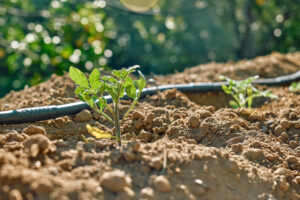 Water Conservation in Polk County
Water Conservation in Polk County
Polk County Utilities Division (PCU) has been a leader in water conservation. Conserving water is important to Polk County for the following reasons:
• Water conservation helps ensure there will be water for future generations.
• Water conservation helps to keep water affordable for everyone.
• Water conservation keeps our state’s lakes, streams and wetlands healthy.
Polk Utilities helps the community save water. They provide information, rebate opportunities, outreach events, irrigation system audits and hold community presentations.
Using reclaimed water is one conservation effort used by Polk County. Reclaimed water is highly-treated wastewater that is distributed to homes for use as irrigation water. For every gallon of water that is reclaimed, one less gallon of water needs to be taken from the aquifer. This means more water can be used as drinking water and for indoor use.
Despite these efforts, the demand for water is greater than the supply. These water supply challenges are not unique to Polk County. The majority of water providers in Central Florida are looking for ways to provide water from alternative sources. Unfortunately, these alternative supplies are expensive to construct.
Florida is running out of inexpensive water. The problem is real, serious and now.
Did you know that Florida’s freshwater supply primarily comes from the upper Floridan aquifer? The water we drink mostly comes from an aquifer that’s underneath our feet.
But we’re using the upper Floridan aquifer’s resources faster than nature can replenish them. The upper Floridan aquifer is in danger of being over-pumped. Next year, the aquifer will reach its maximum safe level of withdrawals. After that, we will see impacts on lakes, streams and wetlands.

If the upper Floridan aquifer is over-pumped, Polk County’s lakes, rivers and streams may begin to dry up or stop flowing. It also increases the risk of sinkhole formation. Here in Polk County, we cherish our outdoor lifestyle and lakes, streams and wetlands are part of who we are as Floridians.
The solutions to protect Florida’s natural water resources are costly.
The only way to protect our natural water resources is to work now on alternative water supplies. This requires, for example, digging below the upper Floridan aquifer as deep as 2,000 feet to the lower Floridan aquifer for water. This is an expensive process and the water will require treatment to remove salts and minerals that are not pleasant to drink.
Polk County Utilities Projects
In addition to addressing water supply, additional capacity is required at Polk County’s wastewater treatment facilities. Collecting and treating wastewater is a necessity for public health and safety. Wastewater is treated to meet reclaimed water standards, which is then used for irrigation, reducing the need for fresh water supplies. This process is also expensive.
These two growing pressures prompted Polk County to perform a comprehensive rate study to determine the rates and fees necessary to support future capital and operational expenses. Simply put, it was time to reassess what it costs to provide water to Polk County’s residents in a safe and reliable manner.
Polk County Utilities Rate Increases
You’re probably wondering what all of this means to you. To meet the increased demands, Polk County water and wastewater rates will increase by 6% on October 1, 2024. The rates will continue to increase by 6% every year through 2028.
Polk County Utilities Division has not increased water and wastewater rates since 2019.
Similarly, the surcharge assessed on water usage (amount added to bill on top of standard rate, based on use) will increase by $0.25/1,000 gallons each year from October 2024 through October 2028. This will help supplement alternative water supply projects in Polk County. A similar surcharge will be added to reclaimed water usage.
Connection fees are money collected from new residents who are connecting to the utilities system to pay for capacity in the system. Residential water service connection fees will increase from $2,844 to $2,942 on January 1, 2025, and then to $3,038 on October 1, 2025. Residential wastewater connection fees, meanwhile, will increase from $4,195 to $5,182 to $6,168 in the same timeframe.
Additionally, fees for other services will increase based on the cost of providing the services. At the direction of the Polk County Board of County Commissioners, increases based on the Florida Public Service Commission index may be added annually to the rates to adjust for inflation, if needed.
These rate changes will impact all Polk County Utilities customers. For a complete list of rates and fees, visit
www.polk-county.net/services/utilities/rates-and-fees or call (863) 298-4100.
Ways to Save Water and Money

Even as the Polk Utilities rates increase, there are things you can do to conserve water and positively impact your bills.
Indoor water efficiency:
• Install low-flow toilets and shower heads.
• Check washing machines, toilets and pipes often for leaks.
• Do not let water run needlessly.
• Turn off the water when you’re brushing your teeth.
• Invest in water-saving appliances.
Outdoor water efficiency:
• Modify landscaping to feature Florida-friendly plants and grass.
• Invest in rain sensors or smart irrigation timers.